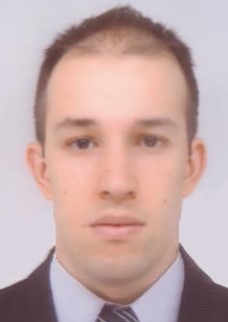Twentieth International Workshop on Learning Classifier Systems
Date: TBD between July 15-16
Location: Berlin, Germany @ The Genetic and Evolutionary Computation Conference (GECCO)
Abstract
In the context of evolutionary machine learning, rule-based machine learning (RBML) algorithms are an often overlooked class of algorithms with flexible features employing an alternative paradigm of piece-wise modeling that sets them apart from other strategies, particularly with respect to modeling complexity and human interpretability. Since John Holland’s formalization of the Genetic Algorithm (GA) and his conceptualization of the first RBML, i.e. the Learning Classifier System (LCS) in the 1970’s, the LCS paradigm has broadened greatly into a framework encompassing many algorithmic architectures, knowledge representations, rule discovery mechanisms, credit assignment schemes, and additional integrated heuristics. LCSs combine the global search of evolutionary algorithms with the local optimization of reinforcement or supervised learning. LCS algorithms uniquely distribute learned patterns over a collaborative population of individually interpretable (IF: THEN) rules. This allows the algorithm to flexibly and effectively describe complex and diverse problem spaces found in behavior modeling, online-control, function approximation, classification, prediction, and data mining. These systems uniquely benefit from their adaptability, flexibility, minimal assumptions, and interpretability. Topics that have been central to RBML for many years, such as human interpretability of the generated models, are now becoming of high interest to other machine learning communities. This workshop serves as a critical spotlight to disseminate the long experience of RBML in these areas, to attract new interest, and expose the machine learning community to an alternate advantageous modeling paradigm.
Topics
- Paradigms of LCS (Michigan, Pittsburgh, …)
- Theoretical developments (behavior, scalability and learning bounds, …)
- Representations (binary, real-valued, oblique, non-linear, fuzzy, …)
- Types of target problems (single-step, multiple-step, regression/function approximation, …)
- System enhancements (competent operators, problem structure identification and linkage learning, …)
- LCS for Cognitive Control (architectures, emergent behaviors, …)
- Applications (data mining, medical domains, bioinformatics, intelligence in games …)
- Optimizations and parallel implementations (GPU, matching algorithms, …)
- Other rule-based machine learning methods/topics (association rule learning, artificial immune systems, hybrid systems,…)
Organizers

Dr. Ryan Urbanowicz is a research associate at the Institute for Biomedical Informatics at the University of Pennsylvania, with a Ph.D in Genetics from Dartmouth College and a Masters of Bioengineering from Cornell University. His research focuses on the development of rule-based machine learning methods for complex bioinformatics problems. At GECCO he has authored two best papers and organized the rule-based machine learning workshop and tutorial for 4 years.

Karthik Kuber is a Data Scientist at Microsoft. He received his PhD and MS from Syracuse University in Computer Science. His dissertation research was on studying evolutionary algorithms from a network perspective, focusing on Genetic Algorithms, Particle Swarms, and Learning Classifier Systems. His current research interests are in exploring and applying various machine learning techniques, especially deep learning, in the context of large-scale engineering systems.

Danilo Vasconcellos Vargas is an assistant professor at the Faculty of Information Science and Electrical Engineering, Kyushu University. He received the M. Eng. and Ph.D degrees from Kyushu University. His thesis was about employing a new concept of fitness to both machine learning and optimization. His current research interests focus on general learning systems which include research in evolutionary algorithms, neural networks, learning classifier systems and their applications.
Program Committee Members
| Name | Affiliation |
|---|---|
| Jaume Bacardit | University of Nottingham, UK |
| Ester Bernadó-Mansilla | La Salle – Universitat Ramon Llull, Spain |
| Lashon B. Booker | The MITRE Corporation, US |
| Will Browne | Victoria University of Wellington, New Zeland |
| Larry Bull | The University of the West of England, UK |
| Martin V. Butz | University of Würzburg, Germany |
| Jan Drugowitsch | Ecole Normale Supérieure, France |
| Ali Hamzeh | Shiraz University, Iran |
| John Holmes | University of Pennsylvania, US |
| Muhammad Iqbal | Victoria University of Wellington, New Zealand |
| Tim Kovacs | University of Bristol, UK |
| Pier Luca Lanzi | Politecnico Di Milano, Italy |
| Xavier Llorà | Google Inc., US |
| Daniele Loiacono | Politecnico di Milano, Italy |
| Javier G Marin-Blazquez | Universidad de Murcia, Spain. |
| Ivette Carolina Martínez | Universidad Simón Bolívar, Venezuela |
| Luis Miramontes Hercog | University of Notre Dame, US |
| Albert Orriols Puig | Google Inc., US |
| Sonia Schulenburg | Level E Limited, UK |
| Kamran Shafi | University of New South Wales, Australia |
| Patrick Stalph | University of Würzburg, Germany |
| Wolfgang Stolzmann | Daimler AG, Germany |
| Ryan J. Urbanowicz | University of Pennsylvania, US |
| Stewart W Wilson | Prediction Dynamics, US |
Advisory Committee
| Name | Affiliation |
|---|---|
| Jaume Bacardit | University of Nottingham, UK |
| Ester Bernadó-Mansilla | La Salle – Universitat Ramon Llull, Spain |
| Will Browne | Victoria University of Wellington, New Zeland |
| Martin V. Butz | University of Würzburg, Germany |
| Jan Drugowitsch | Ecole Normale Supérieure, France |
| Muhammad Iqbal | Victoria University of Wellington, New Zealand |
| Tim Kovacs | University of Bristol, UK |
| Pier Luca Lanzi | Politecnico Di Milano, Italy |
| Xavier Llorà | Google Inc., US |
| Kamran Shafi | University of New South Wales, Australia |
| Wolfgang Stolzmann | Daimler AG, Germany |
| Ryan J. Urbanowicz | University of Pennsylvania, US |
| Stewart W Wilson | Prediction Dynamics, US |